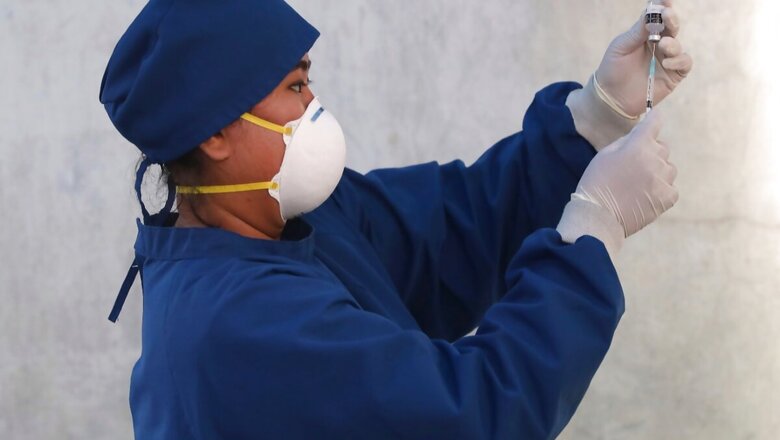
views
If there is anything positive that has come out of this deadly pandemic, it is the swift advancement of technology — some of which can help prevent the oncoming of another such viral infection.
According to a report by The Wall Street Journal, scientists have made progress with gene-based technologies, techniques that have long stumped scientists and pharmaceutical companies, suggesting the possibility of future protection against a range of infectious disease.
Johnson & Johnson’s, for example, will be the first Covid-19 vaccine administered in the US that uses viral-vector technology, which employs an engineered cold virus to ferry coronavirus-fighting genetic code to the body’s cells.
Vaccines with similar engineering developed in China and Russia also have been authorised for use in those and other countries. The Covid-19 vaccine developed by the University of Oxford and AstraZeneca PLC, which has been authorized in the U.K. and other countries, also is a viral-vector shot.
The report by WSJ further states that Covid-19 viral-vector vaccines are made by engineering a harmless type of virus—such as an adenovirus that can cause the common cold—to carry a gene from the coronavirus into the cell.
Viral-vector vaccines also can be designed and manufactured relatively quickly, using the same basic building blocks, to fight an emerging infectious-disease outbreak. Scientists told The Wall Street Journal that the technology could yield approved vaccines against other infectious diseases, such as Zika and influenza.
Two viral-vector Ebola vaccines have been cleared for use.
However, there is but one inhibition about the use of viral-vector technology. Some fear that people could develop an immunity to the vaccine itself, potentially making it less effective against new variants of the coronavirus or another type of outbreak.
A viral-vector Covid-19 vaccine developed in China didn’t perform as well in some people during testing because subjects had pre-existing immunity to the underlying virus that was used.
WSJ’s report states that one way around the challenge is to use a virus from another species. The viral-vector vaccine from AstraZeneca PLC and its partner University of Oxford, which is being tested in the U.S., uses a chimpanzee adenovirus.
Read all the Latest News, Breaking News and Afghanistan News here













Comments
0 comment